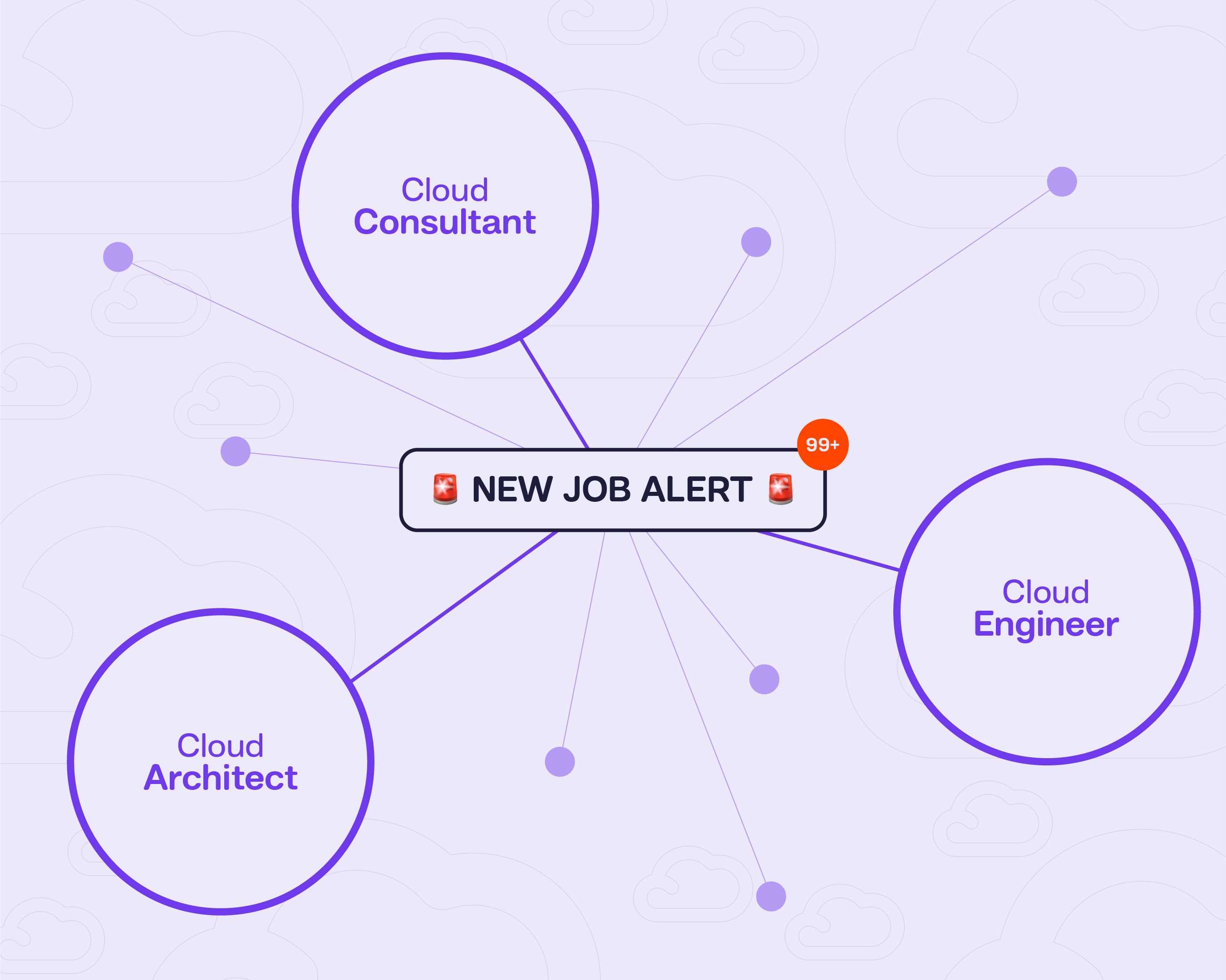
The Impact of Cloud Computing on the Job Market
October 5, 2023
Aron Wagner
CEO & Co-Founder
Cloud computing is not just a fleeting buzzword. It is a paradigm shift in how we store, process, and access data. By offering scalable resources through the internet, it has reshaped industries across the board. Yet, perhaps one of its most profound effects lies in its impact on the job market.
As businesses increasingly adopt cloud-based services, the demand for relevant skills and professions escalates, while other roles face the threat of becoming obsolete.
Cloud Computing: A Job Market Game Changer
Rising Demand for Cloud Professionals
Global end-user spending on public cloud services is expected to reach $591.8 billion by the end of 2023. This significant rise translates into an urgent need for an additional workforce within the industry.
Creation of New Job Roles
Cloud computing has given rise to various new roles, such as cloud architects, cloud engineers, cloud security specialists, cloud data analysts, and cloud administrators. These positions require expertise in cloud infrastructure, migration, security, data management, optimization, and operations.
Transformation of Traditional IT Roles
IT professionals now need to adapt and acquire cloud-related skills to remain relevant. Cloud technologies have become integral to infrastructure management, application development, data analysis, customer relationship management, and artificial intelligence.
Shifting Skill Sets: Embracing the Cloud
Cloud Architecture and Design
Cloud architects play a key role in designing scalable and secure cloud solutions that align with business objectives. They must possess a deep understanding of cloud platforms, infrastructure, best practices, and architectural patterns.
Cloud Security and Compliance
Cloud security specialists are responsible for implementing security controls and monitoring threats. They must ensure compliance with regulations such as GDPR, HIPAA, and PCI DSS.
DevOps and Automation
Professionals with skills in DevOps and automation are highly sought after. They streamline development processes, enable faster deployments, enhance scalability, and improve operational efficiency using tools like Jenkins, Kubernetes, Ansible, and Terraform.
Data Analytics and Machine Learning
Professionals proficient in data analysis, data science, and machine learning algorithms are crucial for deriving valuable insights from vast amounts of data stored in the cloud.
Navigating the Cloud Job Market
Gain Relevant Certifications
Popular certifications include AWS Certified Solutions Architect, Microsoft Azure Administrator, Google Cloud Certified Professional, and Certified Cloud Security Professional. These validate your cloud expertise and demonstrate commitment to continued learning.
Get Hands-on Experience
Engage in projects, internships, or personal initiatives to gain hands-on experience with cloud platforms. Consider volunteering for nonprofit organizations and contributing to open-source projects like those hosted by the Cloud Native Computing Foundation.
Stay Updated with Industry Trends
Use industry publications, join online discussion forums, listen to educational podcasts, and attend webinars and conferences focused on the cloud.
Network and Collaborate
Participate in online communities such as Stack Overflow and GitHub, attend webinars hosted by AWS, Microsoft Azure, and Google Cloud Platform, and consider regional meetups and hackathons.
Acquire the Benefits of the Cloud
The demand for cloud professionals continues to increase, emphasizing the need for individuals to continue their education and adapt to changing requirements.
As you embark on your cloud career journey, American Cloud is here to support you. Our reliable and cancel-proof cloud services empower businesses of all sizes to harness the power of the cloud securely and efficiently.